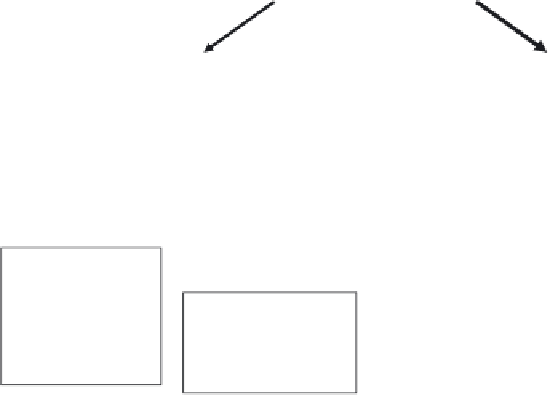Biomedical Engineering Reference
In-Depth Information
Activates
Expresses
Inflammatory
insults
Infection
Immune reaction
Physical injury
Foreign body
Cells
Serum
Platelets Leucocytes
Factor XII Complement
Histamine
Serotonin
Lysosomal enzymes
Prostaglandins
Leukotrienes
Hydroperoxides
Cytokines
von Willebrand factor
Nitric oxide
Adhesion molecules
Endothelium
1.1
Mediators participating in the acute systemic infl ammatory
response.
complement and coagulation systems), leukotrienes, lysosomal proteases,
oxygen-derived free radicals, platelet activating factors, cytokines and
growth factors (Anderson, 2004).
Acute infl ammation
lasts from minutes to 24 to 48 hours. It is character-
ised by changes in vascular calibre and endothelial permeability. The pre-
dominant cell type involved at this stage is the neutrophil, which migrates
and binds to the site of injury via chemotactic agents and adhesion mole-
cules respectively. This process results in extravasation of fl uid and proteins
causing oedema. Opsonins, especially IgG and C3b, promote the recogni-
tion and attachment of neutrophils to the surface of a device and may play









Search WWH ::

Custom Search